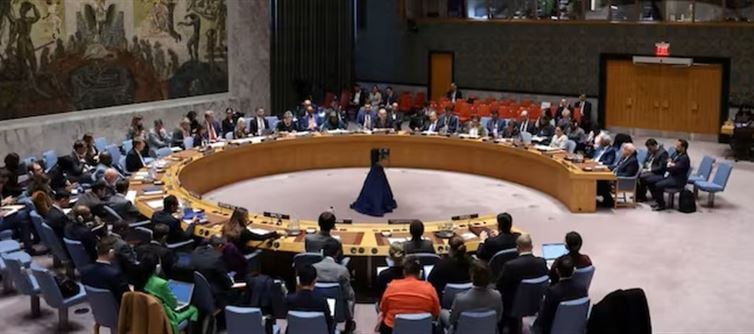
Asim Iftikhar Ahmad, Pakistan's Permanent Representative to the UN, once again exploited the UN Security Council to disseminate bogus allegations against India. By bringing up the kashmir problem and accusing india of military buildup and threatening remarks, pakistan sought to deflect attention from the pahalgam terror assault, which claimed the lives of 26 civilians.
The recent suspension of the Indus Waters Treaty by india, which Ahmad described as an "act of aggression," is seen by india as a conscious effort to divert attention from Islamabad's role in facilitating cross-border terrorism.
To resolve the matter, pakistan, a non-permanent member of the influential 15-nation Security Council, had asked for secret consultations.
Greece, as May's Council president, called a private meeting for the afternoon of May 5. This consultation was conducted in a separate room next to the UNSC Chamber, as opposed to formal sessions where members gathered around the famous horseshoe table.
Asim Iftikhar Ahmad, Pakistan's UN representative, informed reporters after the meeting.
Before the UNSC meeting, Ambassador Syed Akbaruddin, India's former Permanent Representative to the UN, told PTI that a conversation in which one of the conflict's parties tries to influence perceptions by utilizing its Council membership cannot be expected to have any "consequential outcome." India will thwart such attempts by Pakistan.
China asked for closed UNSC deliberations in august 2019 to address India's decision to remove Jammu and Kashmir's special status. Pakistan's efforts, supported by Beijing, to internationalize the kashmir issue—which the vast majority of the Council emphasized is a bilateral matter between New delhi and Islamabad—were severely snubbed when the meeting ended without any conclusions or statements from the influential 15-nation UN body.
Tensions at their peak
“Targeting civilians is unacceptable – and those responsible must be brought to justice through credible and lawful means,” he said. Guterres stressed that it is essential – especially at this critical hour — to avoid a military confrontation that could easily spin out of control. “Now is the time for maximum restraint and stepping back from the brink. That has been my message in my ongoing outreach with both countries. Make no mistake: A military solution is no solution,” the UN chief said.




 click and follow Indiaherald WhatsApp channel
click and follow Indiaherald WhatsApp channel